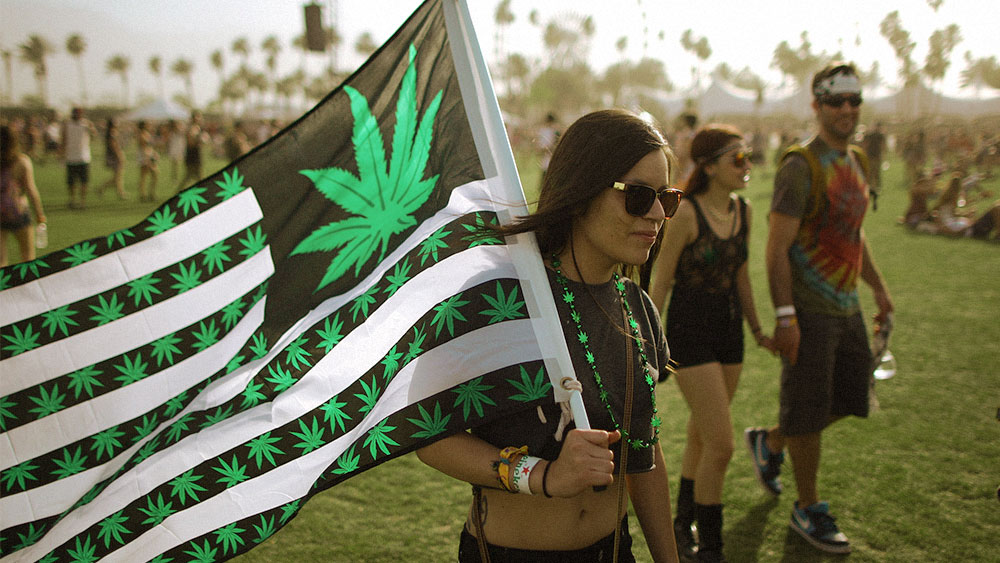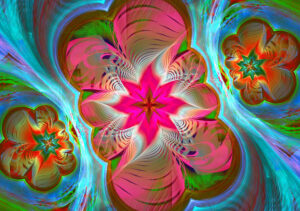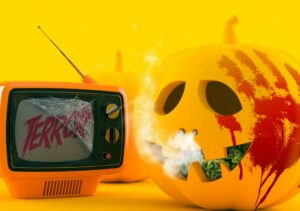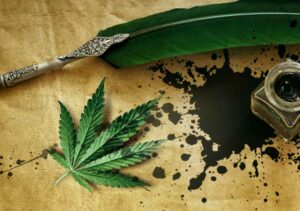Cannabis festivals have a rich history and have evolved over the years, from prohibition to legalization.
With the advent of festivals in recent times, from music festivals to industry gatherings, it makes sense that cannabis would join the ranks, or even pair up with different festivals, to lay a claim in people’s minds while sharing valuable industry secrets and celebrating cannabis in general.
Over the years many different kinds of cannabis festivals have begun to bud. What once started as people gathering in protest has evolved to world-renowned strain competitions and a place for people to appreciate the drug.
But as legalization has come to Canada and parts of the U.S., there are still hazy areas for how cannabis festivals can play nice with the law, and what will or won’t be allowed.
Read on for an in depth look at the history of cannabis festivals, which ones have achieved legendary status, and how festivals are functioning with new cannabis laws.
History of cannabis festivals
Cannabis events don’t always get the credit they deserve in the role they played in ending prohibition and paving the way for a new acceptance of the drug.
It was no easy feat to bring together a festival during the time of prohibition, when there was a constant fear of arrest and operations had to be organized in the shadows.
Many festivals came about as protests against arrests for cannabis possession that were deemed unfair.
Hash Bash began in Ann Arbor, Michigan, due to the 1969 arrest of John Sinclair, who was a poet and managed the band MC5.
Sinclair was arrested due to his political beliefs, and was caught for possession of two joints, landing him a 10-year prison sentence. John Lennon even wrote a song about his arrest.
After Sinclair spent two years in prison he was released, and the Michigan Supreme Court said the state’s laws against cannabis were unconstitutional.
The first Hash Bash took place the April after Sinclair’s release in December 1971 at the University of Michigan at Ann Arbor. It was a celebration of Sinclair’s release and a call to resist prohibition.
Another festival that began as protest is the Washington Smoke-In in Washington, D.C., which began in the late 1960s on July 4.
Truly a rebellious event, people would blaze a joint in front of the White House on the nation’s birthday, and took a “safety in numbers” approach, where they gathered enough people that police would be powerless to arrest them all.
The event was eventually snuffed out by U.S. President Ronald Reagan in 1982, but has since returned with calls for cannabis legalization.
Cannabis festivals have even helped move along the process towards legalization. Seattle Hempfest has labelled itself a “protestival” given its mission of celebrating cannabis while protesting the laws against it.
Founded in 1991 as the Washington Hemp Expo, it began with the Seattle Peace Heathens Community Action group who wanted to create a platform in the cannabis community to raise awareness for the drug, and drew around 500 people in its first year.
The festival over the years has helped push along cannabis decriminalization in Washington state. While many early Hempfest attendees were arrested by police – 60 were arrested in 1997 for cannabis use – eventually the festival and police came to an unspoken agreement, and only one person was arrested in 2001.
The festival became so big that it designated itself a “constitutionally protected free speech event,” which allows it to be held in a public park.
Hempfest helped organize court cases that changed how Seattle and Washington treated cannabis. Initiatives like 1998’s I-692, which decriminalized medical marijuana across the state, or 2003’s I-75, which made marijuana arrests the lowest priority in Seattle, were all organized and rallied for at Hempfest. The state eventually legalized recreational cannabis in 2013.
From its origins the festival has grown to include hundreds of thousands of visitors. In 2008, it set a new record for attendance at 310,000 people. The annual meet is now the world’s largest gathering of cannabis advocates.
Best festivals
In the world of cannabis festivals, more and more are popping up every year, but some are mainstays and legends that define the trend, much like Coachella or Bonaroo for music festivals. These are those festivals.
Cannabis Cup
The High Times Cannabis Cup is one of the top cannabis festivals. Founded in 1988 in Amsterdam by the cannabis publication High Times, the flagship event takes place in that city in November, but in 2010 they began holding offshoot events in the U.S. to take advantage of the newly legal market.
The festival has a wide variety of fun activities to enjoy cannabis, such as vape lounges, live grow-room tours, an edibles village, kitchen demos with cannabis chefs, dab rig expositions, topical massage spas and a world-renowned competition for the best strains.
The winner of the competition receives the prestigious “Cannabis Cup” title, giving the winning bud legendary status. This year there will be regional competitions in different cities, with the “World Championship Cannabis Cup” at the end of the year to hail the champ. There are also rewards for different categories, such as “Best Indica,” “Best Sativa” or “Best Concentrate.”
Further supporting the cannabis and music festival analogy, the Cannabis Cup has been host to big name music acts over the years, such as Patti Smith, Lil Wayne, Nas, 2 Chainz, Snoop Dogg and Rick Ross.
Emerald Cup
Dubbed the “Academy Awards for cannabis” by Rolling Stone magazine, the two-day Emerald Cup is up there as one of the most respected cannabis festivals around.
Taking place every December in Santa Rosa in northern California, it just celebrated its 15th anniversary by drawing over 25,000 attendees. Willie Nelson attended the event and received a lifetime achievement reward that was renamed in his honour.
The cup features the best of the best in medical cannabis, and serves as a bridge between master growers and enthusiasts.
It began in 2003 as a small, local competition where the most hemp in the world is grown, and was one of the first to focus exclusively on organic, outdoor flowers.
It has drawn top music talent as well, such as Damien Marley, The Roots, Portugal.The Man and Margot Price, as well as celebrities such as director Kevin Smith of Clerks fame.
Hempfest
Hempfest is a festival with a mission in mind, to help educate people about the multiple useful uses of cannabis and to remove the stigma around it.
The three-day event held in Seattle, Washington is 100% free and typically attracts cannabis rights supporters.
After legalization in 2013, police officers handed out Doritos at the festival, marking a peaceful unity between law enforcers and cannabis enthusiasts.
The festival has an educational bent to it, where you can enjoy hour long talks by thought leaders on cannabis at the Hemposium, with topics such as how to navigate the new organic certification in the state.
Chalice
Chalice is a unique cannabis festival because it focuses on the tools you use to smoke cannabis rather than the cannabis itself.
It is an opportunity for cannabis-related art to be shared, bought and appreciated among glass blowers from around the world.
Held outside San Bernardino, California in a town called Victorville, it has quickly grown into the world’s largest glass, hash, art and music festival, and has been dubbed the “Coachella of concentrates” by the San Francisco Herald.
Cannafest
The U.S. isn’t the only place with noteworthy cannabis festivals.
Cannafest is one in Prague, Czech Republic that has grown from a local festival to one of the largest and best attended cannabis fairs in the world.
Now in its ninth year, the festival drew over 250 vendors from 25 different countries in 2017, and 25,000 cannabis enthusiasts from all over the world to the beautiful Prague Exhibition Grounds, which was built for the Jubilee Exhibition in 1891. The most recent event took up four exhibition halls, totaling 41,000 square feet.
You can attend seminars, take educational classes, and meet growers, researchers and experts from the U.S., Israel and Spain, for example. Experts include Dr. Lumír Hanuš from the Czech Republic, a biochemist who discovered the first endocannibinoid anandamine in 1992.
The event brings together people from all different cannabis fields, so scientists and doctors can have casual conversations with activists, patients and recreational users.
While most of Europe still prohibits cannabis, laws are fairly lax in the Czech Republic. Visitors caught consuming cannabis or possessing less than 10 grams are usually fined about $60.
420
One can’t really talk about cannabis festivals without mentioning 420.
420 can refer to the time 4:20 p.m., the date April 20, or just be used in general to refer to cannabis in a friendly and casual manner.
While there are many theories of the origins of 420, a consensus has built in recent years.
The credible explanation is that a group of buddies from San Rafael High School in California had a patch of cannabis being grown in the woods, and would meet at 4:20 p.m. beginning in the fall of 1971, just after classes and before football practice, to smoke a joint and go find the grow-op.
Fast forward to the early 1990s, when High Times reporter Steve Bloom published a flyer calling for a meeting at 4:20 p.m., which began the popularization of the term.
420 events, such as political rallies and festivals, happen all around the world around April 20.
Some of note include the National Cannabis Festival in Washington, D.C., the Mile High 420 Fest in Denver, the Palm Springs Cannabis Film Festival and Summit, Snoop Dogg’s 420 Wellness Retreat in Colorado, and, of course, the Cannabis Cup in Los Angeles.
U.S. laws
Now that cannabis is beginning to be legalized across the United States and Canada, the face of festivals may change as laws begin to form.
Already in California, which has legalized recreational cannabis, the Cannabis Cup has run into some bureaucratic obstacles in holding the event.
In May 2018 the Cannabis Cup in San Bernardino, California was almost cancelled because the organizers didn’t realize they needed a permit to sell cannabis at the festival. They filed for one 12 days before the beginning of the festival and luckily were able to get hold of one. The festival ran as per usual, but attendance took a hit due to the last minute scare.
Cannabis Cup’s trouble with the law didn’t end there. The festival was delayed to April 2019 from its scheduled date in late October 2018 because their paperwork again wasn’t in order. They were not able to get a permit approved for the use of cannabis on site in time for October.
Canadian laws
While festivals are getting used to new laws in the U.S., the same is happening in newly legalized Canada, where rules are still being deliberated and put in place.
Since cannabis is now legal in Canada, it is natural that the drug may find its way not just to specialized cannabis festivals, but all festivals in general. Imagine instead of a beer garden, a cannabis garden.
What is legally allowed with cannabis is up to each jurisdiction, though.
Calgary voted to allow designated cannabis consumption sites at festivals in June, creating an exception to its law that prohibits public consumption of the drug.
British Columbia, on the other hand, has no plans to have cannabis-related special event permits.
For the moment, even cannabis companies providing sponsorship to music festivals, which could be a gateway to eventually selling the drug there, has been shot down.
It is currently illegal under the Narcotic Control Regulations and Food Drugs Act, which cannabis laws currently fall under, for cannabis producers to advertise to the general public.
Cannabis company Tweed had advertisements at the music festival Field Trip in Toronto this past summer, and Aurora Cannabis “presented” the 2018 North by North East music festival.
These appearances though eventually led Health Canada to issue a warning in July 2018 for cannabis companies at festivals, saying that doing so runs a risk of a $5 million fine, imprisonment or suspension of growing licenses.
While things appear fairly strict right now for cannabis to legally appear at festivals, there is optimism that the federal and provincial governments warm up to the idea as legalization sets in in order to match the will of the people and compete with the alcohol industry.
Will it keep evolving?
Cannabis at festivals has come a long way since its more rebellious origins. Originally as a means to protest the current laws, it has come to represent a celebration of cannabis and a way for producers and users to meet each other and learn more. While legalization has created hurtles for festivals to now play within the new rules, over time a cannabis festival may be no more controversial than a music festival.





Paul Stanford February 1, 2019 at 11:42 pm
Sad to not see a reference to the Great Midwest Marijuana Harvest Festival in Madison, Wisconsin, ongoing since September 1971. Great to see the references to John Sinclair, the Hash Bash & the White House Smoke-In.
Vivian McPeak February 2, 2019 at 8:15 pm
Thank you for calling out these important public events that have contributed to the global awareness about cannabis growing and the recent advances we have all experienced.
David Klein May 25, 2019 at 12:29 pm
I would like to remind folks of some of the people and sacrifices made in the early day of festivals Tom Crosslin and Rollie Rohm are 2 guys that gave their lives for this cause at Rainbow Farm in Vandalia Michigan in 2001, I urge any pot enthusiast to look up the history of Rainbow Farm and remember these men and their contribution
David Klein May 25, 2019 at 12:31 pm
Rainbow Farm Vandalia Michigan, R.I.P Tom and Rollie